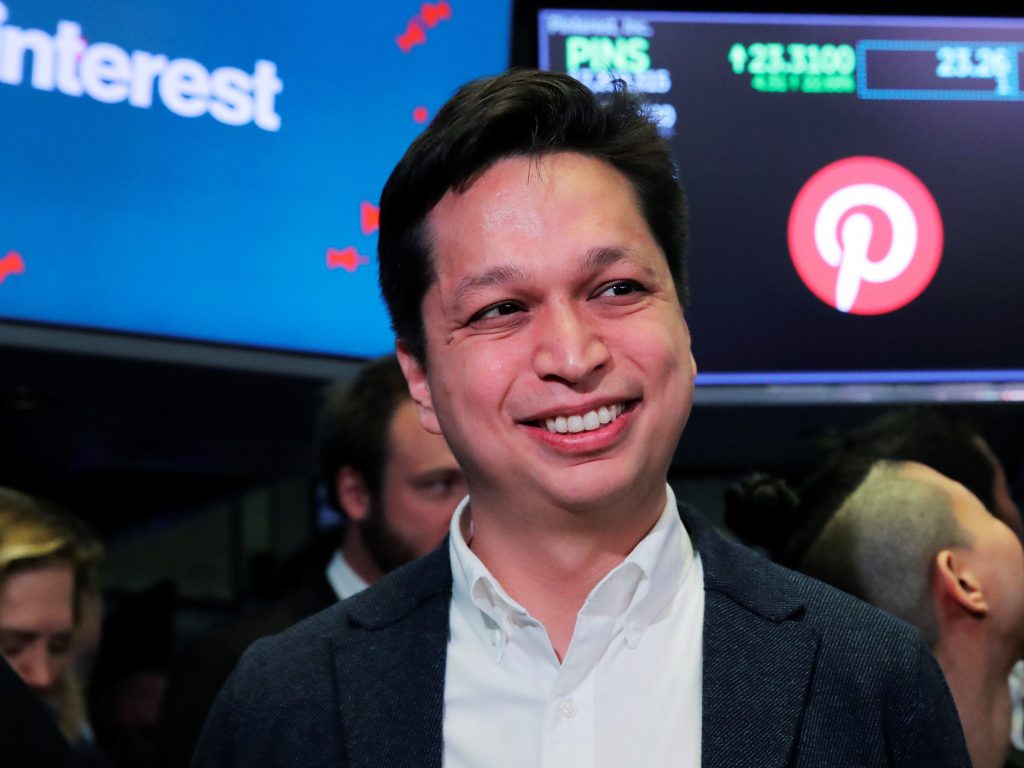- PayPal is in late-stage talks to acquire Pinterest, according to a report from Bloomberg.
- Pinterest could help PayPal reach users earlier in the shopping journey.
- But the deal could put PayPal in direct competition with marketplaces like eBay and Amazon.
A payments giant and a social-media company don’t seem the likeliest of partners, but PayPal’s reported bid for Pinterest could prove to be exactly the type of tie up both sides need.
PayPal is reportedly in late-stage talks to acquire Pinterest in a deal that would see the payments company pay as much as $45 billion for the social-media site in what would be its largest-ever acquisition, as first reported by Bloomberg.
The potential deal would add to PayPal’s growing arsenal of shopper-focused features it hopes can help it win and retain merchants and reach its goal of 1 billion active users.
For Pinterest, the move serves as a boost to its ambitions to expand beyond its social-media roots and convert its 454 million users into shoppers with the help of one of the biggest payments player in the world.
PayPal is increasingly looking for ways to increase its appeal to merchants and justify its fees as its original value proposition – easier online checkouts – faces pressure.
PayPal's checkout button competes not only with other payments providers like Stripe and Square, but also with buy now, pay later players like Affirm and Klarna and one-click checkout services like Apple Pay, Bolt, Fast and Google Pay.
"The value-prop of the PayPal button is getting more and more eroded between buy now, pay later, Apple Pay, Google Pay, et cetera," a source familiar with PayPal's strategy told Insider. "It is becoming a bloodbath."
Pinterest could serve as a brand-discovery channel for online shoppers, giving PayPal a foothold earlier in users' shopping journey.
Pinterest, which started as a social-media website for sharing things like recipes and DIY-inspiration, has been wading into e-commerce and video-based shopping. Users can try on makeup and clothes in augmented reality.
The company, which went public in 2019, announced Wednesday a new set of products for content creators, including rewards and a new TikTok-like feature called "takes," where users' can link back to original posts.
"Pinterest acquisition is interesting as it can help PayPal develop a better understanding of customer's aspirational shopping needs and preferences," Demitry Estrin, founder and CEO of payments consulting firm The Futurist Group, told Insider via email.
"Coupled with transaction data, this may unlock incremental value for PayPal merchants," Estrin added.
By getting involved earlier in the shopping journey, PayPal can pitch itself as a sales-generating partner for retailers.
And it's not PayPal's first push to embed itself earlier into the shopping life cycle.
PayPal acquired Honey, the rewards browser plug-in, in 2019. And it's added rewards powered by Dosh for its Venmo credit and debit cards.
A spokesperson for PayPal declined to comment. A spokesperson for Pinterest did not respond to a request for comment.
A deal would require 'a fair bit of execution'
While acquiring Pinterest may help PayPal boost engagement, it also puts it in competition with its existing partners like Shopify and e-commerce giants like Amazon.
"They would be a very interesting potential competitor for Amazon because brands really don't love Amazon, but they don't have a choice but to sell on Amazon," Dan Rosen, a partner at venture-capital firm Commerce Ventures, told Insider.
Third-party sellers accounted for 54% of sales on Amazon in 2020, but they've faced issues standing out against competition and getting sabotaged by fake product reviews.
Embedding PayPal's e-commerce capabilities (like one-click checkout and identity verification) into Pinterst could also make it a formidable competitor to Shopify when it comes to winning merchants.
"They would be a much more brand-credible platform combined, than Shopify would be," Rosen said, adding that Shopify has had lots of success with small retailers, but the PayPal-Pinterest combo could prove more attractive to larger merchants.
The logistics of how quickly PayPal and Pinterest could integrate has also been raised by some as a potential problem.
PayPal launched cash-back powered by Honey in October this year, about two years after it acquired the rewards startup, for example.
"The achievability of synergies requires a fair bit of execution - something that both PayPal and Pinterest have struggled with historically," AllianceBernstein analysts wrote in a note to investors Wednesday.
Some analysts pointed to the price tag as a reason to take pause given the difficulty of merging two large, public companies.
"The opportunity cost of this kind of investment is high because it could limit PayPal's ability to aggressively invest in other high priority areas," Lisa Ellis, partner and senior equity analyst at MoffettNathanson, wrote in a note to investors Thursday.
The reported $45 billion price tag is about eight times PayPal's annual free-cash flow. And PayPal has several other areas it could invest in without lower execution risk, like international expansion, in-store payments, and buy now, pay later, Ellis wrote.
"The fact that PayPal's management is considering such a large bet in the area outside of its core PayPal Checkout franchise could be a reflection that they feel increased urgency to diversify their portfolio outside of online checkout," Ellis wrote.
The deal could also be viewed as a reversal of strategy for PayPal, which was previously tied up with another e-commerce marketplace.
PayPal was once owned by eBay, serving as the exclusive way to pay on the auction site. The payment giant spun out as an independent company in 2015, and the companies' operating agreement ended in 2020.
PayPal has been vocal about its ability to offset potential losses in payments volume from eBay, and the benefit of having the freedom to work with multiple marketplaces.

